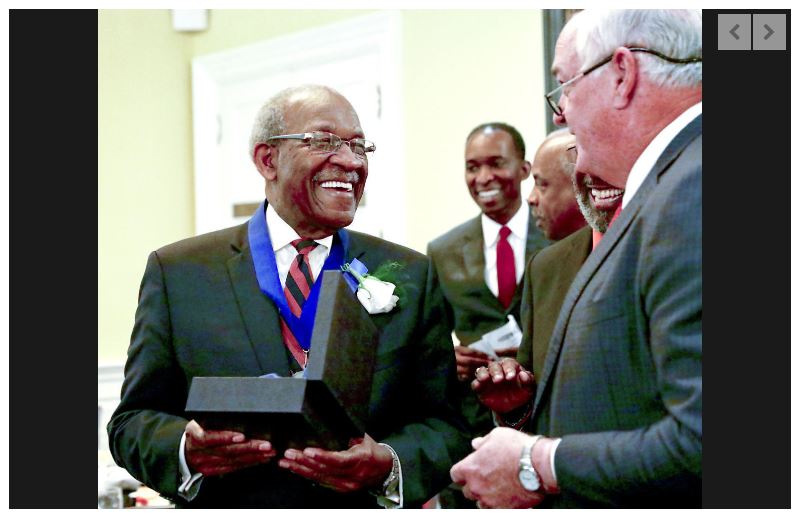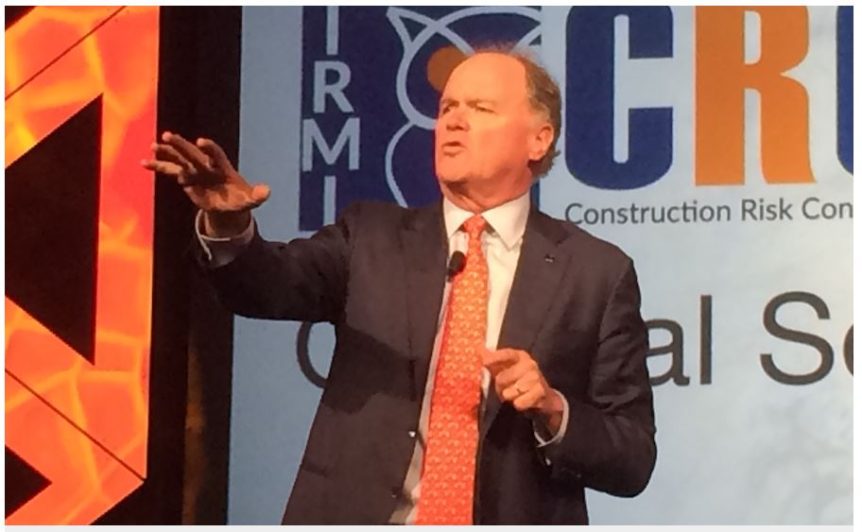A claim against the city of Adrian in a 2009 downtown facade restoration project survived an appeal while a claim by a bonding company is to be granted following a state appellate court opinion. In an opinion published Dec. 5, a three-judge panel of the Michigan Court of Appeals affirmed a decision by Lenawee County District Judge Anna Marie Anzalone to dismiss the city of Adrian’s motion for summary disposition in a lawsuit against it by the project’s general contractor, Campbell-Durocher Group Painting and General Contracting LLC, and its principals, Jack and Carrie Campbell. The Court of Appeals reversed Anzalone’s decision to not rule in favor of Auto-Owners Insurance Co. in its lawsuit against the Campbells over bond payments. Read …
South Carolina Contractor’s Success Story Began With His First Bid Bond
The C.F. Evans story begins in the years following World War II when Clarence Felder Evans, an Army veteran, joined his cousin, Fred Evans, to learn as much as he could about construction. Buoyed by the baby boom, their company, Evans Construction, fielded requests from families seeking to build homes of their own in Orangeburg, Holly Hill, Aiken and other South Carolina communities. The growing company at that time provided quality craftsmanship, hired and supervised talented employees, and encouraged a sense of pride in their work that is still present today. Read the full story >>>
Pennsylvania Lawsuit Alleges Subcontractor Is Owed $52,170 From Payment Bond
A recently-filed lawsuit in Pennsylvania state court sees a Glassport construction and paving group suing one of its subcontractors and a bond company, in connection with a project for construction work of municipal buildings in Penn Hills. Murin & Murn, Inc. of Glassport filed suit in the Allegheny County Court of Common Pleas on Dec. 6 versus The Ohio Casualty American Insurance Company of Seattle, Wash. and Wheels Mechanical Contracting & Supplier, Inc. of Elrama. Tell me more >>>
Improper Installation Of Stone Veneer Creates Risk Of Mold, Rot
We all remember the litigation nightmare surrounding synthetic stucco or EIFS (exterior insulation finish systems) in the recent past. Now, commentators worry that Adhered Concrete Masonry Veneer, also known as manufactured stone veneer, when installed improperly, poses the potential to cause widespread litigation similar to EIFS. In case you do not recall, EIFS became a popular exterior on residential structures in America during the 1980s. However, in the mid-1990s, home inspectors noticed some EIFS-clad homes experienced significant amounts of moisture damage, particularly those on the coast of North and South Carolina. News and media outlets began to widely publicize extensive litigation over EIFS-clad homes. Read the article >>>
What Will Trump’s 2018 Infrastructure Package Include?
Donald Trump’s administration is reportedly planning to unveil its long-promised infrastructure proposal in January, according to The Wall Street Journal. Trump administration officials spoke about the plan’s release as early as March of this year. The president himself said it was largely completed in May, announcing it would be coming in two to three weeks. A themed Infrastructure Week at the White House in June came and went without mention of any details about the plan. Transportation Secretary Elaine Chao then said it would be released sometime in the fall. Read more here >>>
Pennsylvania Construction Union’s Suit Against Contractor’s Surety Alleges Breach of Contract
A Pittsburgh-based non-profit corporation claims a bonding company has neglected to pay it more than $150,000 in contributions and wage deductions, and has initiated litigation to recover that amount. Operating Engineers Local 66, AFL-CIO & Construction Industry Combined Funds, Inc. of Pittsburgh filed suit in the Allegheny County Court of Common Pleas on Nov. 27 versus Allegheny Casualty Company, of Newark, N.J. Tell me more >>>
California Wage Law To Let Subs’ Employees File Claims Against GCs’ Bonds
In mid-October, California passed a bill which will make general contractors liable for any unpaid wages and fringe benefits owed to employees of subcontractors. The ruling will go into effect on Jan. 1, and will apply to all private construction projects entered into after that date. Needless to say, the bill was met with resistance on the side of contractors who argued that it would further inflate costs which would ultimately be borne by buyers. While the bill does provide ways for contractors to seek indemnity from subcontractors who do not pay their employees, it does not offer possibilities to avoid the liability altogether. Read the bill overview >>>
Construction Employers Must Provide Paid Family Leave in New York
Effective January 1, 2018, employees of construction employers (supplies, architects, contractors, and others) working in New York State may be eligible for paid family leave. The NY Paid Family Leave Law (“PFLL”) is both broader than and more narrow than the federal Family and Medical Leave Act. The PFLL applies to all employees employed by private employers in the construction industry and working in New York State, even if those employers are located outside the State of New York or the employee is working from home (for example, sales employees, estimators, etc.). Tell me more >>>
Subs Should Avoid Common Mistakes In Managing Lien Waivers
It’s very easy to make a mistake when exchanging lien waivers on a project, and a lien waiver mistake can be very costly. Most commercial construction companies deal with lien waivers in some form. General contractors must request, collect, and track lien waivers from everyone below them on a project. (And when we say “below them,” we’re not talking about just the subcontractors. We mean everyone working on the project including sub-subs, material suppliers…everyone.) Find out more >>>
Insurer Executive: Shifts In Risk, Liability Will Alter Construction Insurance
Michael S. McGavick, the chief executive of insurer XL Group Ltd., delivered the keynote speech at the International Risk Management Institute construction conference earlier this month in Indianapolis. A former chief executive of Safeco Corp. and a former candidate for the U.S. Senate in Washington state, McGavick predicted in his speech and in a later interview that construction insurance would evolve as the construction industry adapts to a changing world of risk and liability. “The reputation of our industry as being slow to change is just going to end,” he predicted. Here are a few of his key points, as recorded and edited by ENR Deputy Editor Richard Korman. Read the article >>>










